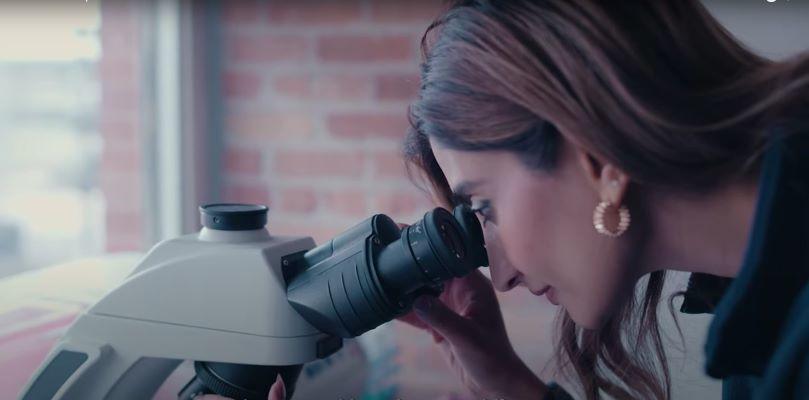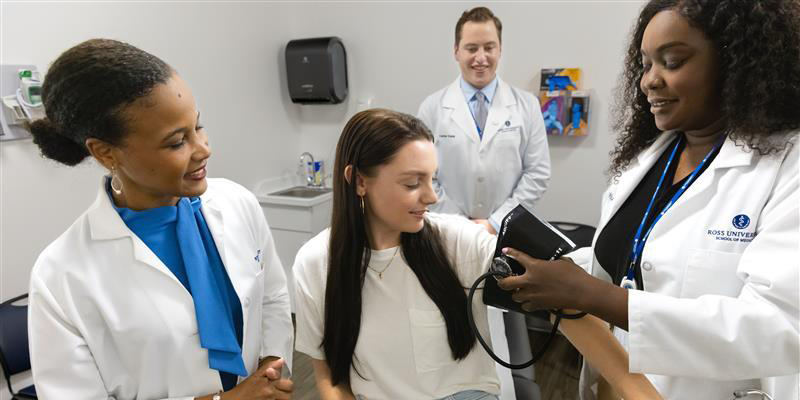In a new video, the Ross University School of Medicine alumna shares how she helps others face fertility challenges while facing her own.
A diagnosis of infertility usually comes after a year of trying unsuccessfully to conceive. The problem affects nearly 1 in 5 married women in the U.S. according to the Centers for Disease Control and Prevention. A range of treatments are available, from medications to invitro fertilization (IVF), with success rates estimated at around 75%.
Helping navigate this confusing and emotional landscape are reproductive endocrinologists and infertility specialists like Dr. Roohi Jeelani, MD ’10. The Ross University School of Medicine grad is a leader at Kindbody, a clinic in Chicago.
“Ross Med holds a special place in my approach to patient care,” she says of breaking down barriers with clients at her practice. Exposure to underprivileged populations in medical school helped her engage with her patients in a way that gives them a voice in their treatment.
Before she was helping other women and families in clinical practice, Dr. Jeelani was a patient herself.
As a teenager, she was diagnosed with polycystic ovary syndrome (PCOS). The hormonal condition begins in adolescence and affects between 8% and 13% of women around the world according to the WHO. It meant she would eventually have trouble conceiving.
“I probably wouldn’t have had my kids if it had not been for IVF,” she says. It took five years for her and her husband to have their first child, a boy conceived through IVF. Her second, a daughter, was a spontaneous pregnancy. Her third, also a girl, was the result of IVF.
Dr. Jeelani’s experience and that of her patients has made her an advocate for reproductive rights, especially following recent court challenges to IVF in Alabama.
In a new video from Adtlalem Global Education, Dr. Jeelani shares her inspiring personal and professional story.
For more information, email the Adtalem Global Communications Team: adtalemmedia@adtalem.com.




